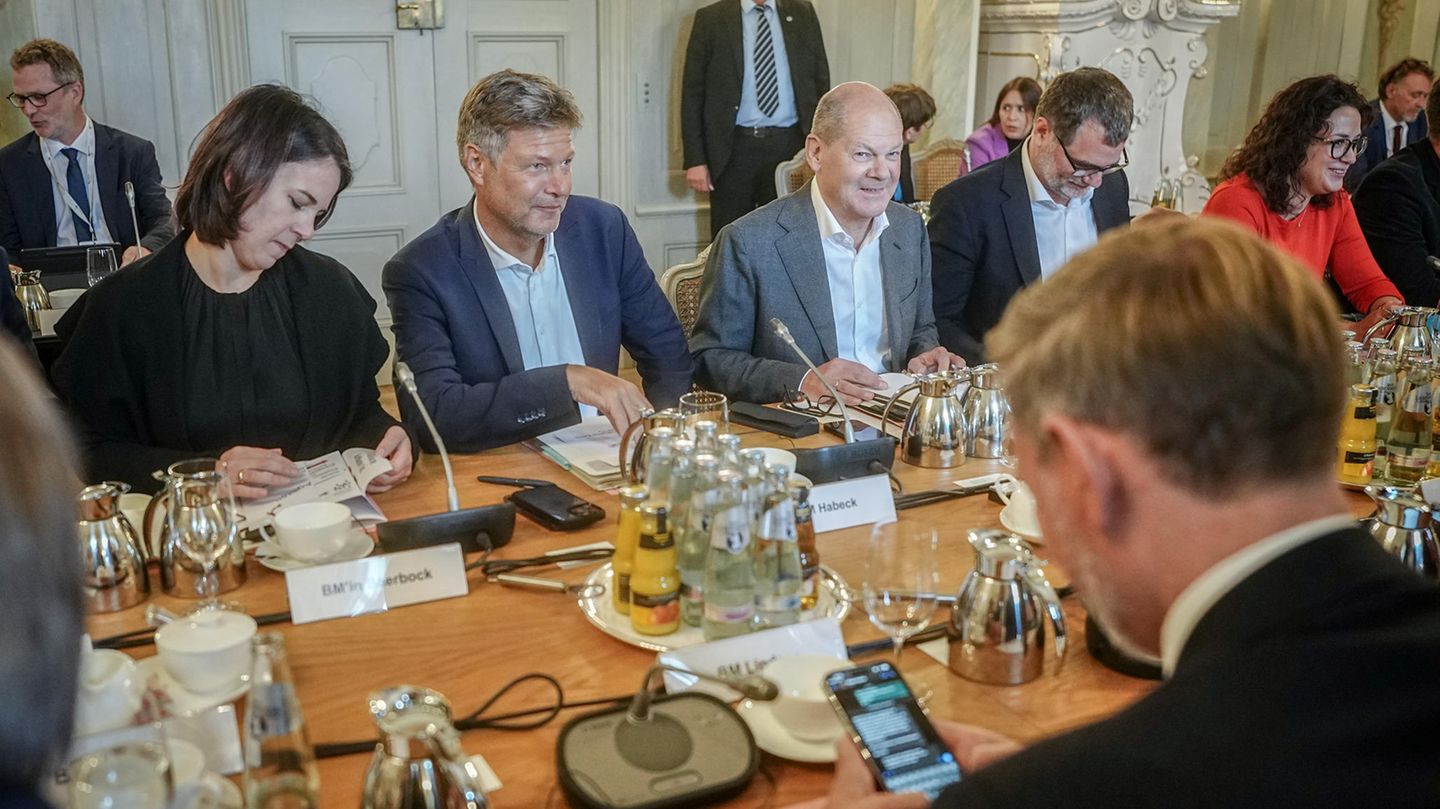“Now negotiations are finally taking place properly in Brussels,” says the Foreign Office. Chancellor Olaf Scholz has apparently asked his ministers not to put the brakes on the EU negotiations on asylum.
Chancellor Olaf Scholz (SPD) is urging that the traffic light coalition not stand in the way of an agreement on the planned EU asylum reform. According to information from government circles, in this context, at the cabinet meeting on Wednesday, he also specifically addressed the so-called crisis ordinance, which the federal government has not yet approved due to criticism from the Green Party. This Thursday, Federal Interior Minister Nancy Faeser (SPD) will take part in a meeting of her EU counterparts in Brussels, which will also discuss the topic.
Can reform slow the increase in migration?
The crisis regulation is part of the planned asylum reform, which is intended, among other things, to limit irregular migration. The regulation is intended to make it possible to extend the period during which people can be held in prison-like conditions if there is a particularly strong increase in migration.
In Brussels, the federal government had previously explained its rejection of the proposal for the regulation by saying that this set of rules could enable EU states to unacceptably lower protection standards for migrants. In Germany, Foreign Minister Annalena Baerbock and other Green Party politicians recently surprisingly expressed fears that the crisis rules could create “incentives for large numbers of unregistered refugees to be forwarded to Germany.” The Council of EU Member States in Brussels suspected that this argument could be connected to the upcoming state elections in Hesse and Bavaria, because this line had not played a role in the EU negotiations to date.
Migration 2023
Most refugees come to Germany from these countries
After a meeting of the Interior Committee in Berlin, Faeser responded to the question of whether the federal government’s attitude towards the regulation had changed: “So far there has been no agreement between the European states, that is not just due to Germany, the Czech Republic has also raised problems and the Netherlands. Poland and Hungary have said goodbye to it completely, unfortunately.”
There is therefore still a need for discussion, including the question of what the characteristics of such a crisis should be. The minister nevertheless emphasized: But I am confident that we as the federal government will find a good solution there and that we will reach a conclusion at European level in a timely manner.”
“Now negotiations are finally taking place properly in Brussels”
The Federal Foreign Office only said: “Now negotiations are finally taking place properly in Brussels.” The Green Party leader Omid Nouripour said on the television channel “Welt”: “The Chancellor said today that in the end we of course want an overall solution for the entire reform. This also includes a crisis regulation that is good for Germany. And this is now being negotiated .”
Criticism came from the refugee and human rights organizations Pro Asyl and Amnesty, which are against the planned crisis regulation. A pro-asylum message said: “The fact that the Chancellor is now forcing approval shows that human rights considerations no longer count for anything in the federal government.”
Union parliamentary group vice-president Andrea Lindholz (CSU) criticized the coalition: “Chancellor Scholz’s ‘power word’ on the EU crisis regulation comes late and is only due to immense political pressure,” she said, according to the statement. “Mr. Scholz allowed the Greens to block not only his traffic lights, but the whole of Europe.”
Source: Stern
I have been working in the news industry for over 6 years, first as a reporter and now as an editor. I have covered politics extensively, and my work has appeared in major newspapers and online news outlets around the world. In addition to my writing, I also contribute regularly to 24 Hours World.




